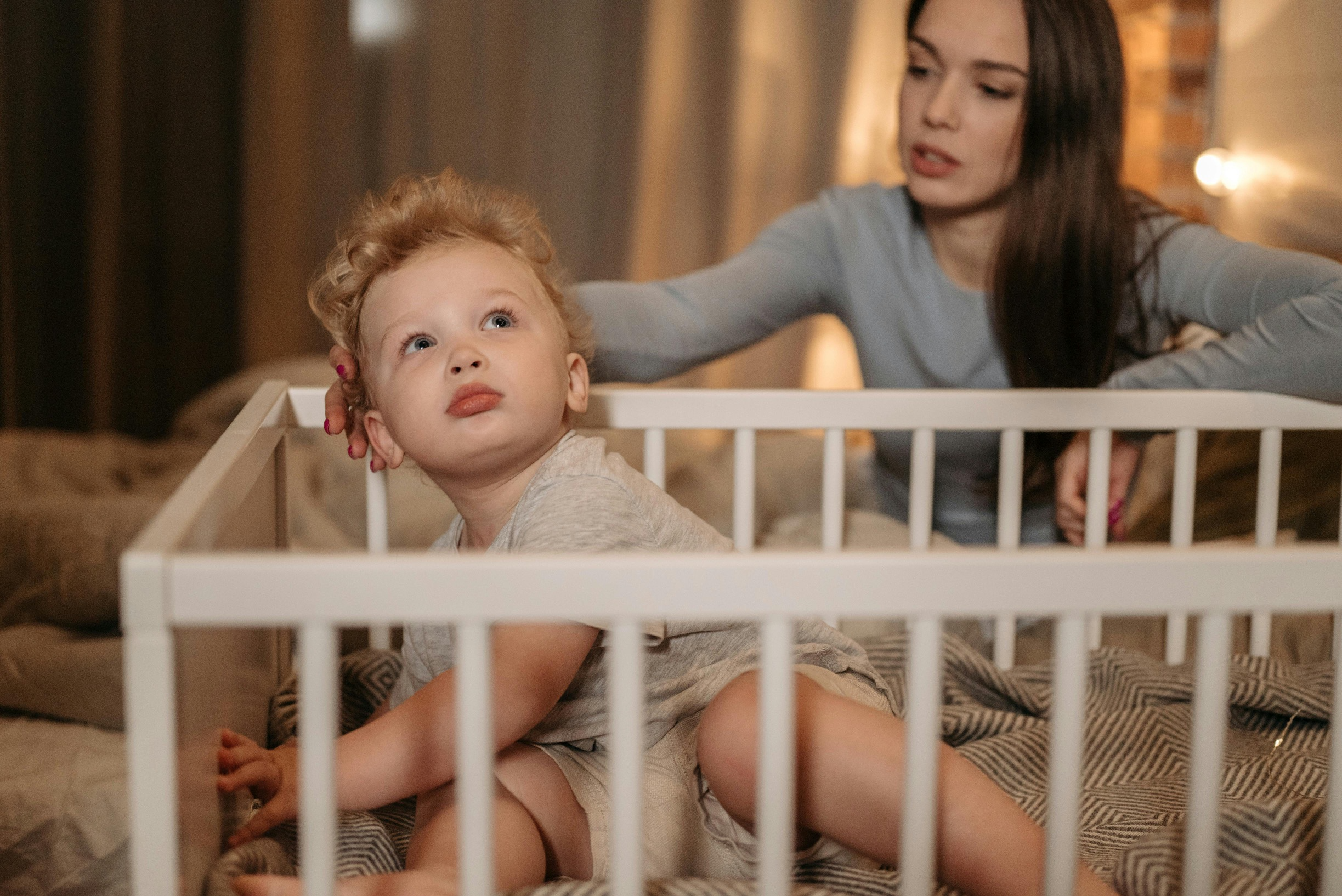It’s fair to say that in most of the families we’ve worked with over the years, one parent takes on more of the parental responsibilities than the other. That’s not due to some antiquated view of parenting but more the result of simple practicality. If one parent is at work all day, then the other spends more time with the children and does more of the dressing, changing, feeding and nurturing.
Whatever the split of those parental duties, whether it’s 60/40 or 75/25, the parent doing more is the primary caregiver, and it’s usually the case that they’re also the one who puts the baby to sleep.
If that sounds like you and you’re ready to start teaching your little one how to sleep independently, it could be a good idea to ask the parent who doesn’t usually handle the feeds to put your baby to bed.
There’s a method to the madness
Unlike most of our sleeping tips, this is not based on hard data or peer-reviewed studies. Instead, it’s based on personal experience and witnessing how effective this simple adjustment has been for hundreds of parents over the years.
Most of the sleep struggles for babies over the age of six months are due to an overreliance on what we call ‘sleep props’. For example, they’ve got used to being rocked to sleep, taken on stroller rides or being fed or nursed to sleep. A huge part of getting your baby to sleep through the night is breaking that reliance on their sleep prop. When they wake up in the night, as we all do, rather than crying out for their caregiver to give them their sleep prop, they’ll go back to sleep on their own.
Like any skill, this can take time to develop, which is why you have to go through a couple of noisy nights while sleep training. They’ll wake up looking for their favourite sleep prop, and then be confused and upset when they realise it’s not there. If your baby likes to be nursed or fed to sleep, putting the parent who doesn’t usually handle feeds in charge of bedtime can help to remove a lot of that confusion.

Temporary pain for a long-term gain
It can be very confusing for your baby if the parent who usually feeds them puts them to bed but doesn’t feed or nurse them. Getting the other parent to take the reins can minimise that confusion, and although your baby may protest more initially, that protest will usually end more quickly.
Although this will probably mean the parent putting the baby to bed won’t get as much sleep as they need for a couple of nights, that pain will quickly be replaced by long-term gain. Once your baby is an independent sleeper, you’ll be able to reap the physical and mental benefits of a good night’s sleep and even leave your baby with the grandparents for the night. So, it’s got to be worth a try, right?
Stay tuned to our sleep blog for more tips and schedule your free consultation to discuss any other issues you have with your baby’s sleep.



